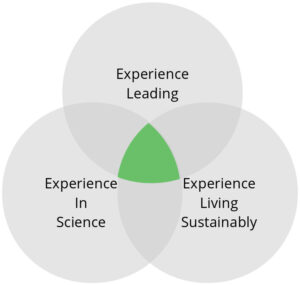A response to a common self-serving response to the NY Times profile of me
Here’s a typical response on a forum to Tuesday’s profile in the New York Times of me from someone who I think would describe themselves as environmentalist:
I enjoyed the article, and your blog post. You are part of the tiny % of the comfortable class who voluntarily simplify. Of course there are 8 billion, most of whom live in INvoluntary simplicity, and are trying to increase their throughput.
In fairness, the Times article missed that I focus on leading people, not hoping that by mere personal action I’ll influence others or make a difference. Still, I’ve seen this type of response enough to see the pattern.
Also in fairness, when we’re addicted to many things in our lifestyles, it can be incredibly difficult even to see that addiction, let alone to act on it. I don’t use the term “addiction” lightly. My book devotes several chapters to it, and I recommend reading it for the full picture. Still . . .
Do you see the self-protection in othering me, implying something different between them and me?
Do you see the underlying attempt to excuse personal change?
Do you see the judgment, the holier-than-thou-ness, the self-righteousness?
Do you see the put-down and implication that I’m ignorant?
This person posts regularly on a forum with articles and links to facts, numbers, etc but nothing in the realm of leadership. No personal leadership, no leading others, nothing suggesting the qualities necessary to lead others: integrity, character, credibility, experience, listening, self-awareness, and related things.
My response:
> You are part of the tiny % of the comfortable class who voluntarily simplify.
That’s like saying Serena Williams was part of the class who plays world champion-level tennis. That view leaves out that she was born like everyone else, unable to play tennis, but trained and trained, practicing the basics. After she got great, she helped others realize their potentials. Likewise, I wasn’t born with interest or ability to live more sustainably any different than anyone else’s. I practiced the basics of sustainability and reached through work what absolutely everyone else in the world can do. After all, every human for 250,000 years lived joyfully sustainably.
Because unlike tennis, where height or accidents of birth make a difference and not everyone likes sports, we all can live more sustainably. We all have deep, powerful emotions relevant to nature and alleviating suffering that can motivate us toward sustainability.
I didn’t know it could be done and believed the unquestioned beliefs my culture taught me: it would cost more, take more time, revert to the Stone Age, couldn’t be done by poor people, risked national security, etc. Unlike me, who had no role models of people in my culture living more sustainably to the tune of dropping one’s impact 90 percent and finding the opposite of those beliefs, everyone now has many role models in me and the people who went through my workshops, which enable people to do in seven weeks what took me seven years.
> there are 8 billion, most of whom live in INvoluntary simplicity, and are trying to increase their throughput.
Yes, that’s why I focus on sustainability leadership, not lecturing facts and numbers, trying to pass legislation that doesn’t have popular support, and other acts of convincing, cajoling, and other types of coercion. People who take my workshops and practice the basics of sustainability leadership see how counterproductive coercion is. We see that discovering and sharing the joy and gratitude of living more sustainably enables us to lead others. But we have to learn to lead, often unlearning to coerce. Then there is no substitute for practical, hands-on experience, which reading articles and talking theory isn’t.
We see how people who haven’t practiced the basics — including, painfully, ourselves before practicing the basics — rationalize and justify our violating our own deepest values. It’s hard to go against mainstream culture, but 1) it’s what we have to change to reach sustainability and 2) it’s wonderful to escape its despair, hopelessness, helplessness, guilt, shame, isolation, etc.
Living more sustainably is joyful. Mainstream culture may try to convince us otherwise with the unquestioned beliefs that sustain it, but practicing the basics reveals it.
Sustainability leadership is a performance art. Like any other art, it requires practical, hands-on experience. People promoting sustainability without practical hands-on experience are like people who only read books on music appreciation and theory, but never playing a scale, trying to teach piano.

Read my weekly newsletter

On initiative, leadership, the environment, and burpees